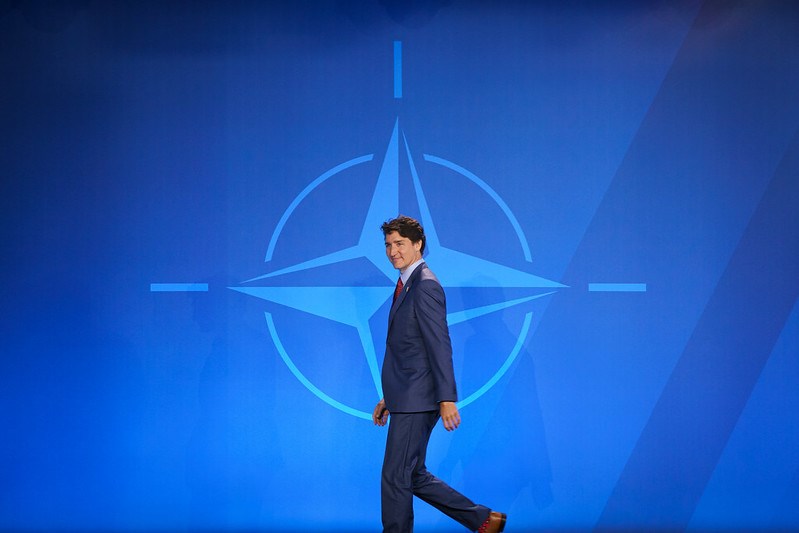Anyone who wagered that Prime Minister Justin Trudeau would step down before the next election can pay up today.
NDP Leader Jagmeet Singh is yours to thank.
Trudeau is suddenly frozen in place and into the unofficial phase of an imminent election campaign. Even his party’s detractors have to walk it back and zip it shut. As of Wednesday, it’s too late for a leadership race – no matter the negatives, the face of the party for the last 11 years and three elections is the one it will offer Canadians again.
It will still almost assuredly be a 2025 election, even with the now-shredded NDP-Liberal partnership that kept the minority government running with confidence. Nothing looms as a confidence vote, and there are fall elections in B.C. and Saskatchewan not to disrupt. But it’s a government on much less borrowed time, likely to topple with the spring budget, which would mean a vote before summer.
What had been clear for some time was that any political dividend for the ideas arising from the NDP’s supply and confidence agreement with the Liberals (read: dental care, pharmacare, one-time GST rebate boost) was mainly yielding benefits for Trudeau’s party – even if they’re meagre ones, even if they’re clearly pirated.
Which is also to say there is no whiff of new ideas of their own for Liberals to pitch Canadians next year. Governments tire and often sell in an election their performing style over their proposed substance. That doesn’t bode well. The guy at the top – hard-driving campaigner and performer though he is – serves as a liability, with a more than two-to-one disapproval-to-approval rating.
How you sell a government with a profoundly unpopular leader is one mighty parlour trick.
Singh can point to the Liberals’ swift shutdown last month of the railway labour stoppage as the last straw in his pact, but there were plenty of other slights and breaches. Moreover, Singh’s party was hearing increasingly that its Big Bad Wolf imitation – to huff and puff and blow the house down every time Singh didn’t like the vibe – had grown stale. Propping a disliked prime minister was increasingly a bad bet, outweighing the golden opportunity to influence policy and propel the party that the deal originally offered in 2022.
Suddenly, strong talk.
“The Liberals are too weak, too selfish and too beholden to corporate interests to stop the Conservatives and their plans to cut. But the NDP can,” he wrote on X in severing his deal. “Big corporations and CEOs have had their governments. It’s the people’s time.”
The people appear not to be heeding his call. Polls for both opposition factions are worthy of sympathy: around 25 per cent for the Liberals, around 17 per cent for the NDP, the same 42-per-cent total Conservatives enjoy under Pierre Poilievre. If an election were held today, a prime minister Poilievre would be part of a roughly 210-MP caucus in what will be a 343-seat House of Commons. In B.C., polls suggest the Conservatives would take 34 of 43 seats, far from the three-way seat-split with Liberals and the NDP of 2021.
The opposition parties may seem like they’re now merely picking up the pace in their walks toward the edge of a cliff, but to be fair, this divorce permits them time to differentiate living on their own. Both are wearing complaints they’re too similar, the political equivalence of the “convergence hypothesis” that couples end up looking and acting alike the longer they stay together.
A serious strategic consequence of the Trudeau-Singh deal has been that the Liberals were hauled beyond their traditional guardrails of the mushy middle. It will be somewhat simpler to offer Canadians a moderate government if it can shed orange from its wardrobe in favour of bright red. Then again, there’s that leader.
In re-announcing a student lunch program from last spring’s budget at a Newfoundland school, the prime minister said Wednesday he’s preoccupied with delivering programs to Canadians. “I’ll let the others focus on politics,” he said. I rewound the video to make sure he had a straight face with no betrayal of the presence of irony in the room as he rolls out a federal program in provincial jurisdiction. Count on it: everything now, if it hadn’t been before, is about politics.
Trudeau still wishes the election isn’t until its scheduled date, “hopefully not until next fall.” But Liberals have been buying time on their term well past a reasonable due date with no improvement in their poll plight. Expect that next budget to be a colossus of aid and appeasement; if, as it seems, the ship is going down in flames, it might as well be spectacular.
Kirk LaPointe is a Glacier Media columnist with an extensive background in journalism.




